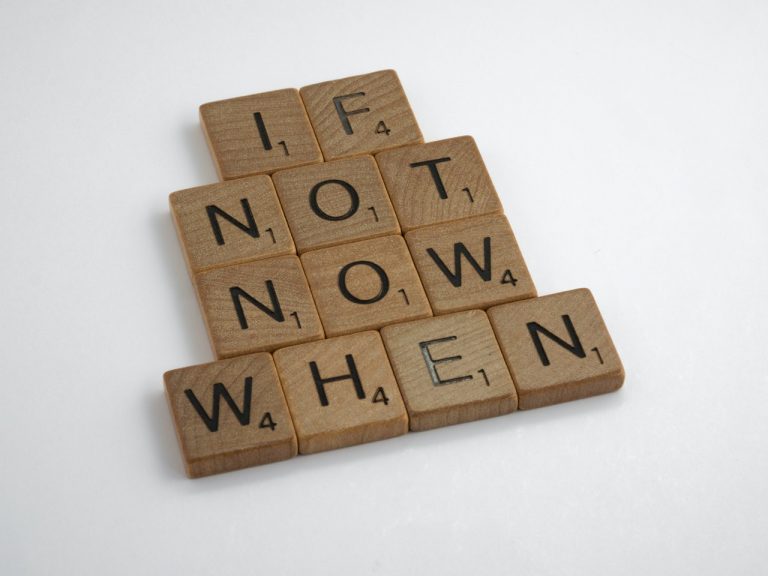Procrastinating has less to do with time management and more to do with mood management.
This article was taken from: https://www.vice.com/en/article/akd44z/why-do-i-procrastinate
By Emily Cassel
Of all the viral tweets that define our very existence, few are as universal as this one, from writer Kimberly King Parsons: “Took Me Eleven Minutes to do That Thing I’ve Been Avoiding for Three Months: A Memoir.”
Sometimes we just can’t make ourselves do stuff! Last month, when I asked people to talk about times they’d opted to not do something that they could also simply… do… my mentions were flooded. A few representative examples:
- “I had a passport photo taken in February. It’s been sitting on my dresser ever since because I won’t take 10 minutes to fill out the renewal form and mail it in.”
- “Bonfe has been taking $8/month from me FOR A YEAR because I was too lazy to call and cancel, or to simply answer the phone and cancel when they called me to schedule furnace maintenance.”
- “I replaced an outside bulb yesterday, took me three minutes fr[om] beginning to end. It’s been burnt out for two years.”
- “I bought a car two years ago and have been avoiding buying the city sticker I legally need to park it in the city of Chicago for just as long. All I have to do is send one (1) email. Maybe next year.”
Whether it’s watching your plants wither for weeks before repotting them (total time to complete: six minutes) or waiting until you get pulled over to replace the registration sticker that’s been expired for a year (that was me, I did this), a lot of folks are procrastinating on alllll kinds of little things.
Why, exactly? When it’s relatively simple to Do The Thing, and when the consequences of Not Doing The Thing can be serious or fairly unpleasant, why do so many of us look the other way?
Joseph Ferrari, a professor of psychology at DePaul University in Chicago and author of Still Procrastinating?: The No Regrets Guide to Getting It Done, told VICE that for a long time people looked at this kind of procrastination as laziness or disorganization, when it’s actually an avoidance strategy. “It’s not time management—it’s a much more complicated concept,” Ferrari said.
“People talk about procrastination as a time management problem because that’s what it looks like on the surface, right?” said Fuschia Sirois, who studies procrastination at the University of Sheffield and co-edited the book Procrastination, Health, and Well-Being. “But it actually has not very much to do with time management. It has to do with mood management.”
Here are some of the specific reasons we avoid relatively simple tasks, according to experts, along with ways we can try to manage our procrastination and get things done.
You’re putting a task off because there’s… no reason not to put the task off.
There can be financial, personal, and professional consequences to procrastinating on the small stuff. But sometimes there kind of aren’t! Consider the passport photo that’s been sitting around, waiting for you to take 10 minutes to mail in the application. When travel is out of the question due to an ongoing pandemic, why spend even that much time on it?
Similarly, Ferrari pointed out that we don’t live in a society that encourages us to get things done early. If you owe money on your taxes, the government could say, “File by February 15th, and we’ll take a percentage off.” They don’t—so why pay before April?
“We get punished for being late in our culture,” Ferrari said. “We don’t get rewarded for being early.” And when you internalize the message that there’s no point in being early, you can apply that to any task that needs doing.
Tim Pychyl, an associate professor in the Department of Psychology and leader of the Procrastination Research Group at Carleton University, said celebrating the things you’ve done can help get around this. “We have to focus on the good feelings we’ll have when we accomplish the goal as opposed to the negative feelings we have at the moment,” Pychyl said.
It might sound corny, but even if you didn’t have a to-do list, write down the tasks you completed—or the ones you started! Check them off, and treat them as wins from your day. That, too, can give you the positive feelings that help you do more. “They give you a sense of efficacy,” Pychyl said.
And what’s cool is that once you start, the progress actually fuels your positive feelings about doing the task. “It’s one of the few times we see an upward spiral—that progress fuels wellbeing, and wellbeing leads to more progress.”
There’s something about the task itself—and the way you feel about it—tripping you up.
“Procrastination is an avoidant way of coping,” Sirois said. “How do I manage uncomfortable feelings around that paperwork I have to do? I know, I’ll put the task aside and feel better about it. Ah, I feel better already. You just managed your mood by procrastinating.”
Sirois said one common way procrastination happens is when we feel uncertain. When a task is new to us, unfamiliar, or feels big and important—something like applying for a credit card or tweaking a resume—we’re less likely to approach it with gusto. It’s a fairly simple equation: Less confidence equals more avoidance.
Or maybe you’re feeling incompetent or anxious about a task because you’re worried about how others will judge you for executing it. We hear a lot about self-esteem, but Ferrari said social esteem is as important. “People are very, very concerned about how others feel about them.” There’s a tendency to think: “I’d rather people think I lacked effort than lacked ability.”
That fear of fucking up can keep you from starting in the first place—even if it’s a little thing like taking five seconds to write a text or answer an email. And on the other hand, if you do a good job… well, what if you can’t maintain it? What if you can’t do it as well the next time?
It could be as simple as the fact that the task isn’t fun to do. According to Sirois, humans are hard-wired pleasure seekers, which means that if the thing you’re putting off is even a little unpleasant or requires effort—if it veers slightly left of neutral into “not very fun” territory—it’s easy to put it off, even if you know you could knock it out in less time than it takes you to rewatch an episode of 30 Rock.
You’re using logic to try and trick yourself into correcting behavior that’s inherently emotional.
Many of the reasons for putting things off have a common thread: They’re tied to negative emotions. Pychyl said that at its core, procrastination is an “emotion-focused coping strategy.”
“We’re facing a task that—for whatever reason—makes us feel awful,” Pychyl told VICE. Frustration, boredom, resentment, fear—whatever it is, there’s a negative emotion attached to the task. “Your emotional brain, your limbic system, has got you,” Pychyl said. “And it’s giving you a good shake.”
Many of the popular tips for pushing through procrastination offer rational solutions: split the task into tiny chunks, rearrange your schedule, go for a walk, close out the 47 tabs you have open. And those things can be helpful—sometimes, to some degree, and for some people.
But the problem is that those are rational solutions to an irrational, emotional problem. Sirois said that yes, “you can make your environment what I call ‘less procrastinogenic.’ But don’t think that’s going to be the solution.” Instead, she said to look at this as the scaffolding around which you’ll have to build your other efforts.
If it’s a lack of confidence causing you to put off a task, Sirois said to start by making sure you have all the information and resources you need. Are the instructions clear? Do you have questions? If you’re ill-equipped at the outset, you probably won’t keep going.
Deal with that first, and you’ll lower your uncertainty and make it easier to get going. Because when you overthink a task, you can build it up into something that’s much more than what it actually is.
You’re stuck in a shame spiral.
According to Sirois, procrastinators tend to be low in self-compassion. They’re unkind to themselves; they think nobody else procrastinates and that their tendency to drag their feet makes them horrible people. The thing is, she said, “nobody else is thinking that! You’re driving that, you’re stirring up even more negative emotions.”
If you’re avoiding a task because you already have unpleasant feelings about it—and now, on top of that, you’re worried about how you’re going to be judged—you’re only going to avoid it even more. Your inner critic pipes up and gets increasingly mean: “Why didn’t you do this already?” quickly becomes “Why are you such a complete fuck-up?”
“All that self-criticism does, then, is generate more negative feelings about the task, which just makes you want to avoid it all the more,” Sirois said. “That’s why these things drag on.” You might start thinking more about the waiting itself rather than what you’re avoiding, a pattern called “procrastinatory cognition”—in other words, ruminating about your own procrastination.
Sirois said that when people are being avoidant, they tend to go right to asking “What’s wrong with me?” which doesn’t solve the problem or offer any real insight. Instead, they should ask themselves, “Why am I having difficulty with this task?”
You’re not asking for help.
Procrastination tends to be a solitary struggle, but literally everyone does it! And that means you can always talk about it. “Recognize that you’re not the first person to procrastinate, nor will you be the last,” Sirois said. “Everybody does it. I think that’s a really important message: to normalize it and take the edge off in terms of the guilt and shame people often have.”
Talking about it can even help you push through it. Sirois helped conduct a study that found social support can reduce some of the stress that makes procrastination happen. There’s emotional social support, where you say “I’m struggling with this, can I vent?” And there’s informational social support, which looks like asking “Have you ever done this? Can you give me some tips?”
Of course, there’s a catch: For those who have internalized negative social norms around procrastinating, it won’t be easy to seek that support. Being kind rather than critical toward yourself will make it easier to ask for help.
Don’t expect you’re going to get rid of the tendency to procrastinate in the 10 minutes it took to read these tips, and try not to be so hard on yourself. As Sirois said: “You’re just going to drive yourself to procrastinate more.”
And if this behavior has become a regular occurrence—the kind of thing that’s paralyzing you in your personal and professional life or preventing you from reaching your goals—it might be time to talk to a professional. Chronic procrastination can be a symptom of anxiety disorders, depression, and ADHD; a mental health expert will be able to tell you more.
Follow Emily Cassel on Twitter.








